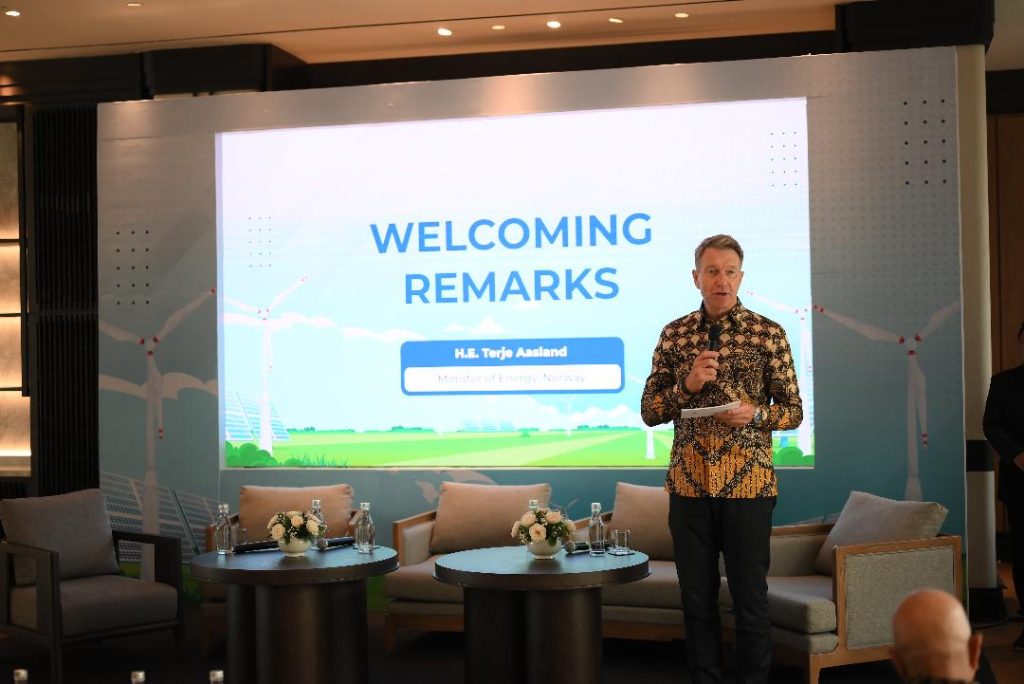
Jakarta—Norway’s Minister of Energy, Terje Aasland, affirmed Norway’s commitment to supporting Indonesia’s emission reduction goals at the “Norway and Indonesia Energy Seminar and Business Exchange on Green Transition” seminar organised by the Indonesia Clean Energy Forum (ICEF), the Institute for Essential Services Reform (IESR), and the Norwegian Embassy.
The seminar was held to bring together various stakeholders and share knowledge related to green energy transition. Indonesia seeks to accelerate the transition from fossil energy to renewable energy by utilising experiences and technologies from other countries.
“Indonesia and Norway have set ambitious NZE targets, with aspirational international goals, such as realising the goals of the Paris Agreement,” Aasland said in a written statement Thursday, July 4.
He also emphasised the importance of green technologies such as CCUS and hydrogen in decarbonising energy. Aasland added that Norway continues to develop new technologies to support decarbonisation.
“I look forward to the Indonesian government’s ambition to achieve NZE by 2060 or sooner, with a focus on the energy sector. He explained that Norway is developing new green technologies to decarbonise energy, such as CCUS, hydrogen, and others,” he explained.
Meanwhile, ICEF Chairman Bambang Brodjonegoro stated the importance of transitioning to renewable energy for Indonesia, which is still dependent on coal.
“There are at least three things that must be prepared for the energy transition, namely renewable energy development, transmission infrastructure development, and becoming an energy storage producer,” Bambang said.
He added that cooperation with Norway could help Indonesia develop technology and build commercial partnerships in renewable energy.
IESR Executive Director Fabby Tumiwa emphasised the significant implications of the energy transition on the fossil fuel industry.
“The energy transition has significant implications for the fossil fuel industry, including reduced demand for fossil fuels and increased pressure from governments, investors, customers and communities to reduce emissions,” Fabby explained.
He also emphasised the importance of innovation in order to remain competitive in the market and advised businesses to adjust their operating and investment strategies. (Hartatik)















